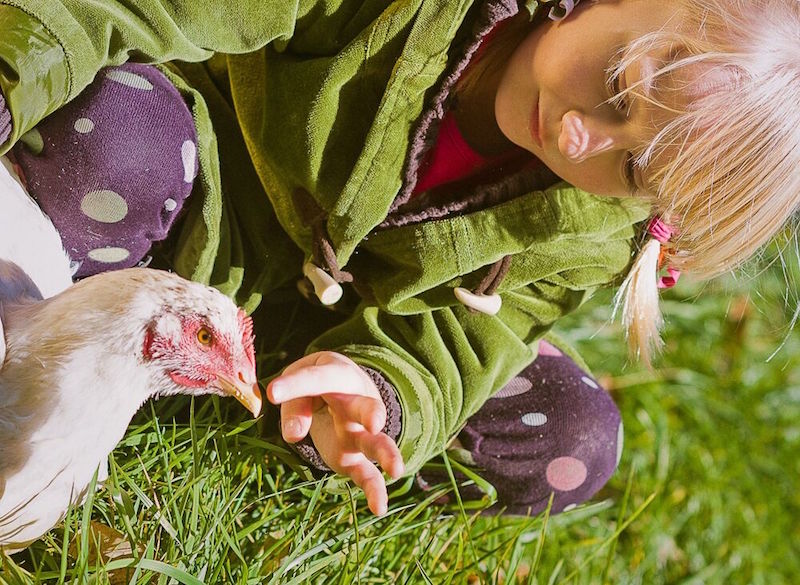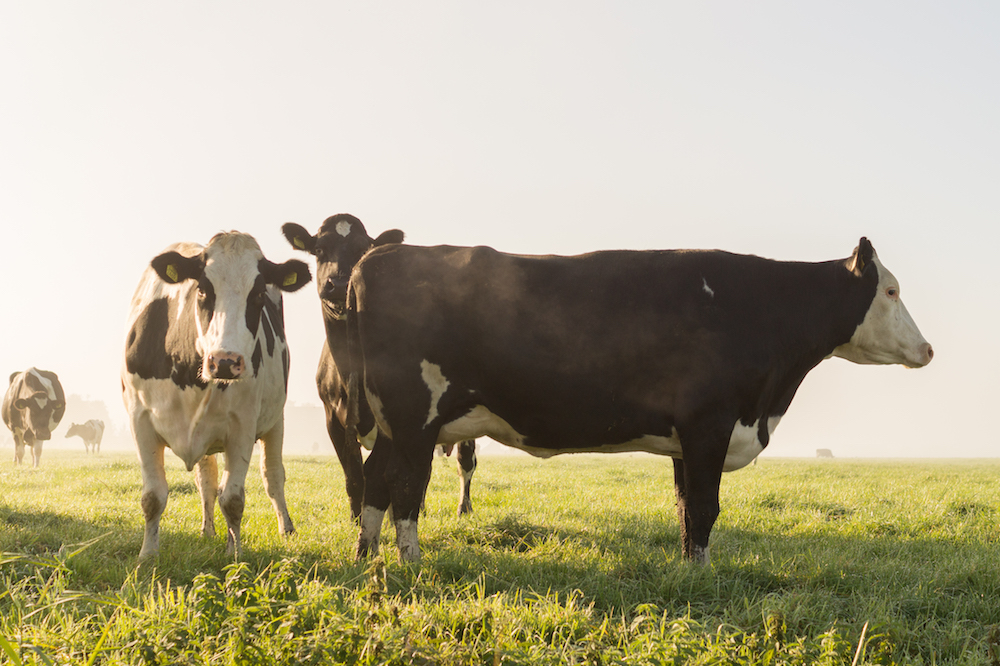The Meat of the Matter
Finding (and defining) ethical Canadian animal products
Canadians are great consumers and lovers of meat, egg, and dairy products. Today, bacon is practically a national treasure. Our love may be resolute, but our attitudes towards the animal products that we consume have changed. Canadians today care about animal welfare more than ever before. Today’s consumers are savvy. We simply know so much more about food production and food sourcing. We share information—and misinformation. Consumer attitudes spur demands in the marketplace and Canadians are demanding that the animal products we consume are ethically raised and processed. There is immense pressure on restaurant owners in particular, who want to be able to tell their customers the where and how of every menu item. Consumers want to see recognizable certification labels and brands, but we don’t fully understand the issue. According to survey findings, Canadians didn’t worry much about identifying ethical meat products until a few years ago. Change takes time and money. The transition between old and new food labelling and certification practices can be expensive. The bottom line is that consumers, restaurant owners, and stakeholders care about animal welfare, and we care about costs. Therein lies the rub.
Are we asking the right questions?
“It is a complicated thing to be able to say that one food product is being produced more humanely than another, or that the animals have had better welfare than others.” Dr. Michael Cockram is Chair in Animal Welfare at the Sir James Dunn Animal Welfare Centre in PEI. He says, “It’s not black and white. There are many factors to consider.” We see labels today like the Certified Humane label and this may create a skewed standard in our minds. The Certified Humane brand is one certification program based in the US. There are a number of programs all similarly aimed at oversight and enforcement regarding animal welfare in the food chain. These schemes seem “quite legitimate and well-thought out,” according to Dr. Cockram. Do we need them in Canada? Maybe, but not for the reasons that we might believe we need them. Animal welfare is a moral imperative and responsibility already embedded in the constantly evolving National Farm Animal Care Council (NFACC) codes of practice. But we may need branded certification programs because Canadians are demanding proof of conformance to animal welfare standards. We seek reassurance through branding that our food products are, among other things, organic, cruelty-free, free-range, locally-sourced, and Canadian. Consumer satisfaction and demand is paramount. But we’re not asking the right questions.
“We have determined that we don’t want to eat eggs from birds kept in cages. It is an ethical stance. Fair enough.” The problem is with the question itself. What is the question that we should be asking? “Is it bad for the animal’s welfare to be kept in a cage?” The answer is “not necessarily.”
What happens when consumers get what we ask for?
Earlier this year in response to consumer demand, Earls Kitchen & Bar publicly stated they would be serving beef sourced from the US instead of purchasing Canadian beef. This was in response to consumer demand for ethical meat sourcing. Earls made the decision to source beef from the US, stating that they couldn’t find labelled humane beef in large enough quantities in Canada. There was significant backlash by Canadians, from both consumers and (understandably) producers of Canadian beef. Earls ultimately reversed its decision in their commitment to always meet consumer expectations. But the issue showed us that Canadian consumers are confused and we don’t always understand why we want what we want. At the end of the day “there are advantages and disadvantages to any system of rearing or keeping animals.” Dr. Cockram reiterates that animal welfare will always be a complicated issue without easy answers.
At the Forefront with Canadian Producers & Stakeholders
With dialogue and time, it is possible to go through animal welfare standards that the industry agrees to as a whole. The difficulty is developing a system that most people, including consumers, will have confidence in and recognize. Canadian producers are at the forefront and they’re focusing time, money, and their collective brain power on creating better information for Canadian consumers, restaurant owners, and retailers.

Egg Farmers of Canada
According to the Egg Farmers of Canada, there are more than 1,000 egg farmers and farm families in Canada. Enriched, free-range, cage-free, free-run are all concepts Canadian consumers are demanding today. But egg processing can be a particularly misunderstood issue. Canadian shoppers are demanding the humane treatment of laying hens, which is certainly a moral imperative, but we’re lacking in knowledge and understanding as consumers, and we care about cost. Understanding egg processing is a family business at Burnbrae Farms, a Canadian family-owned farm since 1893.
Once a single family farm, they are a country-wide agribusiness with farms across Canada. Burnbrae Farms develop and produce innovative egg products in addition to shell eggs for private and brand name labels. When it comes to the health and safety of their hens “Burnbrae Farms is committed to treating all of our hens in a safe and humane manner. We learned very early that a healthy hen is a high-quality producing hen. This is not only good business for us at Burnbrae Farms but a moral commitment. We believe that the welfare of any animal is determined not by the housing system but by the care of dedicated farmers following proper animal husbandry practices. We use animal husbandry practices developed by experts as our guide when making choices about how to raise our hens. We also work closely with Farm and Food Care Ontario (FFCO) and various universities to ensure that we are up to date on the latest research on animal welfare and bird behaviour.”
Animal Care Standards and Enforcement
Egg Farmers of Canada (EFC) works with egg farmers, egg boards, industry organizations, and government. Egg boards are divided into provincial boards which are the bridges between farmers and the EFC. The EFC is also partnered with the Canadian Poultry and Egg Processors Council, the Canadian Federation of Agriculture, the Consumers’ Association of Canada, the Egg Nutrition Center, the Farm Products Council of Canada, the International Egg Commission, and the World Farmers’ Organisation.
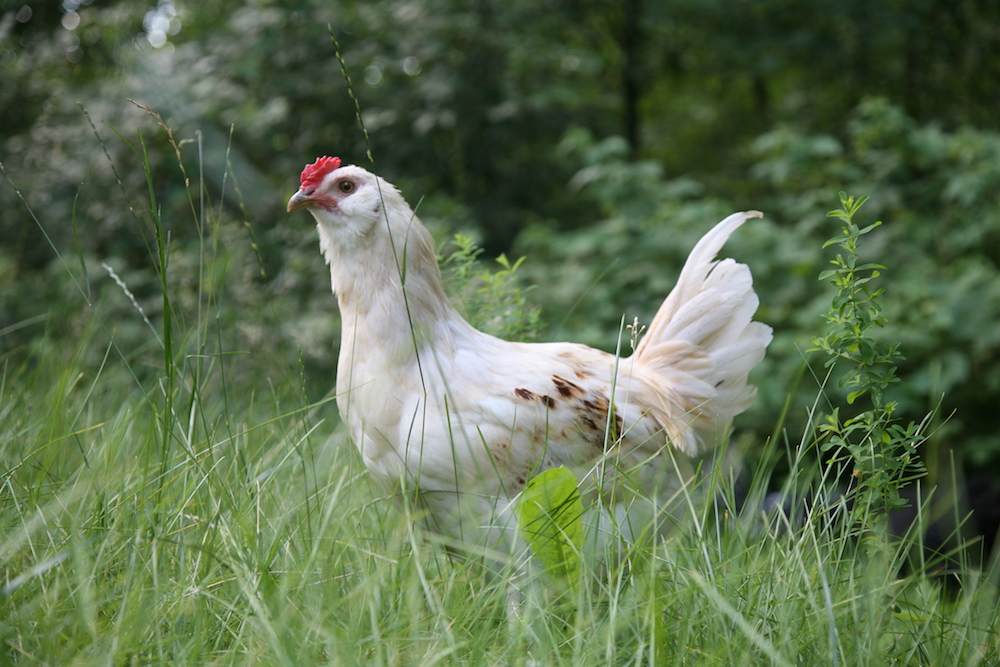
Chicken Farmers of Canada (CFC)
Eighty-seven percent of Canadians want chicken raised in Canada and they want certification to come from farmers. “With the growing consumer demand for locally-produced products, Chicken Farmers of Canada developed the “Raised by a Canadian Farmer” branding program which now appears in many retailers and restaurants throughout Canada. By carrying the ‘Raised by a Canadian Farmer’ logo in your restaurant(s) and store(s), you can assure Canadians that their chicken was raised right here in Canada, by responsible farmers that adhere to strict, national food safety and animal care standards.” The program is free and available to restaurant owners and retailers, and includes support from Chicken Farmers of Canada during the transition phase if switching suppliers. Every farmer in Canada uses the system.
Animal Care Standards and Enforcement
In June of this year, the Chicken Farmers of Canada, Canadian Poultry and Egg Processors Council, Turkey Farmers of Canada, Canadian Hatching Egg Producers and the National Farm Animal Care Council (NFACC) announced the release of a revised Code of Practice for the Care and Handling of Hatching Eggs, Breeders, Chickens, and Turkeys. Canadian chicken farmers adhere to a strict mandatory On-Farm Food Safety Assurance Program (OFFSAP), a national standard that has received federal, provincial and territorial government recognition and full recognition by the Canadian Food Inspection Agency. They also follow a mandatory and auditable Animal Care Program to ensure high animal care standards are being upheld on Canadian chicken farms across Canada. Canada’s chicken farmers are audited on an annual basis by trained auditors. To date, 97% of farmers are certified on CFC’s animal care program.
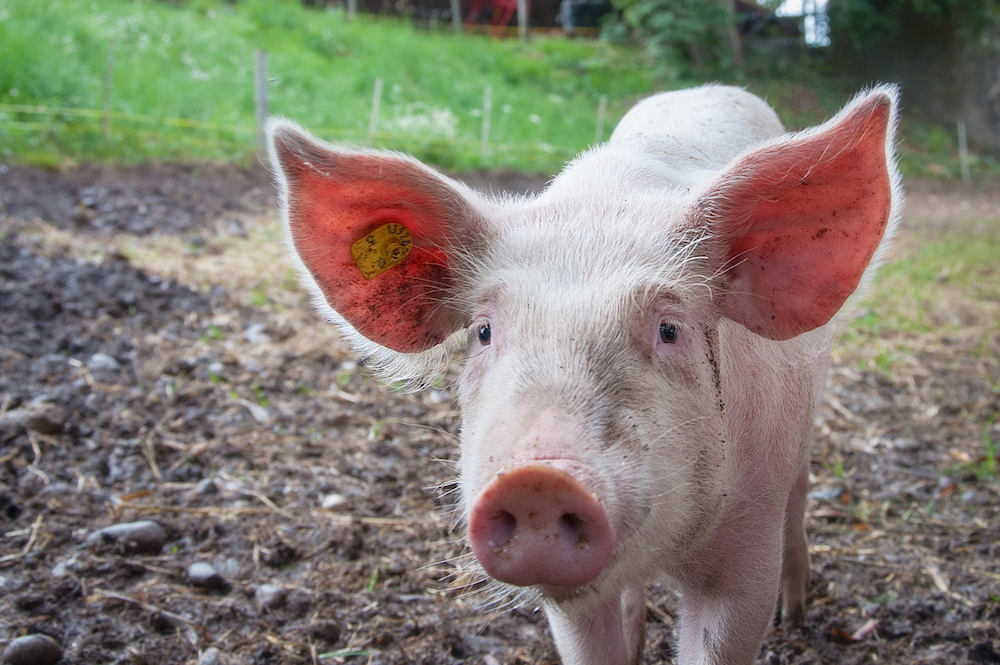
Hog Production In Canada
Canada’s pork producers are leaders in the Canadian agriculture industry when it comes to developing protocols that demonstrate their collective commitment to both animal care and welfare, as well as to food safety. In 2005, the Canadian Pork Council (CPC) launched its Animal Care Assessment (ACATM) program which was based on the existing Code of Practice. A number of Canadian companies are certifying and labelling their products in regards to animal welfare issues in pork processing. Les Viandes du Breton Inc. is a Canadian participant in the Certified Humane program. “We are very proud to be the North American leader in the market for speciality pork products (certified humane and organic). In September 2015, we committed to raising 300,000 more cage-free hogs by 2018. This is one of the biggest announcements ever made in support of humane farming, requiring an investment of over $30 million.”
Canada’s Maple Leaf Foods responds to consumer requests by taking on labelling directly. They have launched a new lineup of poultry and pork, fresh and prepared meats, labelled as “No Antibiotics. No Hormones. Raised on Canadian Farms. 100% Vegetarian Fed.”
Animal Care Standards and Enforcement
There are a number of hog welfare oversight programs across Canada. For example, Ontario Pork and Ontario SPCA are working together when investigating complaints about animal welfare on swine farms. Both organizations work together to exchange information and experiences related to on-farm animal care and Pig Code issues.
The Pig Code contains guidelines for the care and handling of pigs on Canadian farms throughout their lives. In 2014, the National Farm Animal Care Council (NFACC) released its revised Code of Practice for the Care and Handling of Pigs.
Worldwide, pork is the most heavily-consumed meat, especially in America, Europe, and Asia. It accounted for 36.3% of production, followed by poultry (34.4%) and beef (21.2%). Its production went from 20 million tonnes in 1960 to more than 108 million tonnes in 2011 (Statistics Canada).
In 2011, the hog industry was the fourth largest in Canada, after canola, dairy products, and cattle, with cash receipts of $3.9 billion.
Canadian Beef
More than 95% of Canadians surveyed would prefer to purchase beef that is raised on Canadian farms and ranches.
Canadian beef farms and ranches are not intensive factory farms. Family owned and operated is the general rule with the herd size in Canada averaging at 63.
Beef production in Canada contributed $51 billion to Canada’s economy in 2014, up 44% from 2013.
There are over 68,000 beef farms/ranches in Canada.
Angus, Charolais, Hereford, Simmental, and Limousin are the primary breeds raised in Canada. (Canada Beef)
Animal Care Standards and Enforcement
The Code for beef cattle was developed through a collaborative effort which included Canadian cattle producers, processors, transporters, veterinarians, regulators, and animal welfare advocates. The Canadian Food Inspection Agency enforces regulated standards in the federal Health of Animals Act for transportation of animals and monitors the humane handling and slaughter of cattle used to produce beef. Maintaining animal welfare is an important responsibility and an essential contributor to high-quality beef production.
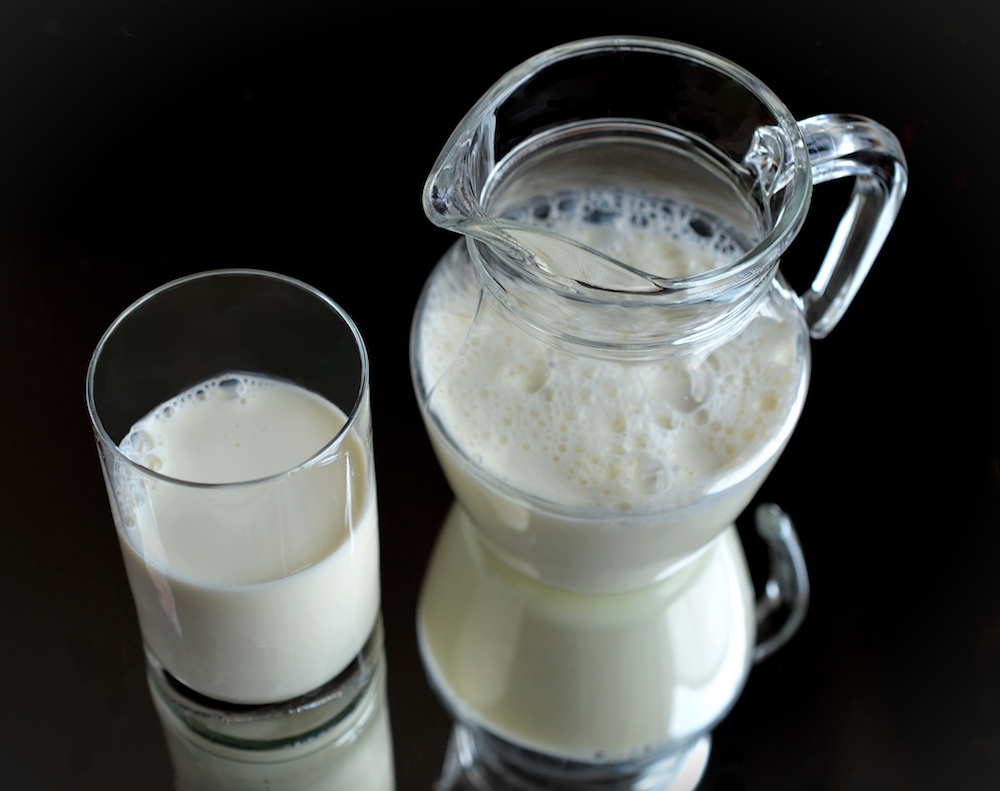
Dairy Farmers of Canada (DFC)
“The rule to be observed in this stable at all times, toward the cattle, young and old, is that of patience and kindness.”
– W.D. Hoard, circa 1885
Dairy Farmers of Canada state that animal care is their top priority. Concern for animal welfare in dairy farming has always been a driving force in the Canadian dairy industry. The Canadian Dairy Farmers’ Federation (CDFF) was established in 1934. The organization became the Dairy Farmers of Canada in 1942 after a merger between the CDFF and the Producers’ Section of the National Dairy Council. To help you know you’re sourcing products which come from DFC producers, Dairy Farmers of Canada has recognizable branding. All products with the 100% Canadian Milk symbol come from Canadian dairy farms.
Animal Care Standards and Enforcement
DFC and other dairy farmer organizations have funded numerous research projects aimed at improving the care and welfare for dairy calves and cows. Each year, a summary of research projects is realized and contains a section on animal welfare. There is also an online database of research where you can find various research projects, including animal care and welfare projects that dairy farmers have sponsored. The results of these projects are also regularly distributed to farmers through articles in agricultural publications. Dairy Farmers of Canada published a new Code of Practice for the Care and Handling of Dairy Cattle in 2009. This code provides guidelines to producers to improve animal care and contains requirements, based on scientific research that has been supported in part by DFC and its members, which DFC expects farmers to follow.
The CERTIFIED HUMANE Program
The Certified Humane program is a US-based nonprofit certification program. Their operations are international, as are their Animal Care Standards, which are written and updated by an international scientific committee. Certified Humane’s independent third-party inspectors—veterinarians and Ph.D. experts in farm animal welfare—routinely inspect farms and slaughter plants in the program.
Are Canadian companies/farmers/producers using the CERTIFIED HUMANE label? how are we using it?
CERTIFIED HUMANE products can be found in Sobeys, Metro, IGA, Real Canadian Superstore and other supermarkets. duBreton Natural Pork has been on the program since 2003. Go to www.certifiedhumane.org and search by province or city in Canada for information on who sells Certified Humane products. Another Canadian company, Open Farm, is the first Certified Humane dry dog and cat food producer in the program. When Humane Farm Animal Care started the program in 2003, there were only 143,000 farm animals in the program. Last year, more than 103 million farm animals in five countries (U.S. Canada, Brazil, Peru and Chile) were in the Certified Humane program.



